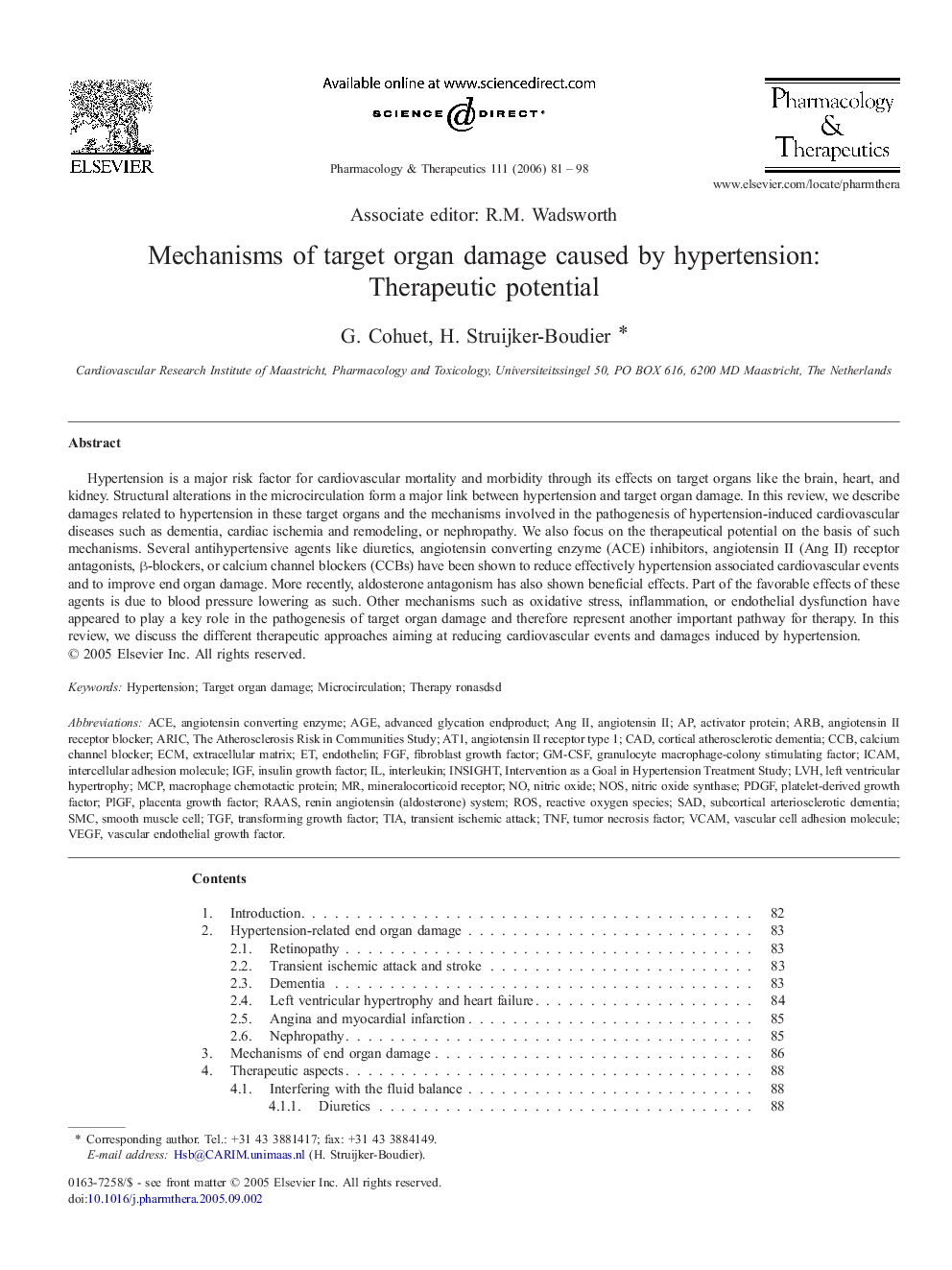| Article ID | Journal | Published Year | Pages | File Type |
|---|---|---|---|---|
| 2564327 | Pharmacology & Therapeutics | 2006 | 18 Pages |
Hypertension is a major risk factor for cardiovascular mortality and morbidity through its effects on target organs like the brain, heart, and kidney. Structural alterations in the microcirculation form a major link between hypertension and target organ damage. In this review, we describe damages related to hypertension in these target organs and the mechanisms involved in the pathogenesis of hypertension-induced cardiovascular diseases such as dementia, cardiac ischemia and remodeling, or nephropathy. We also focus on the therapeutical potential on the basis of such mechanisms. Several antihypertensive agents like diuretics, angiotensin converting enzyme (ACE) inhibitors, angiotensin II (Ang II) receptor antagonists, β-blockers, or calcium channel blockers (CCBs) have been shown to reduce effectively hypertension associated cardiovascular events and to improve end organ damage. More recently, aldosterone antagonism has also shown beneficial effects. Part of the favorable effects of these agents is due to blood pressure lowering as such. Other mechanisms such as oxidative stress, inflammation, or endothelial dysfunction have appeared to play a key role in the pathogenesis of target organ damage and therefore represent another important pathway for therapy. In this review, we discuss the different therapeutic approaches aiming at reducing cardiovascular events and damages induced by hypertension.
